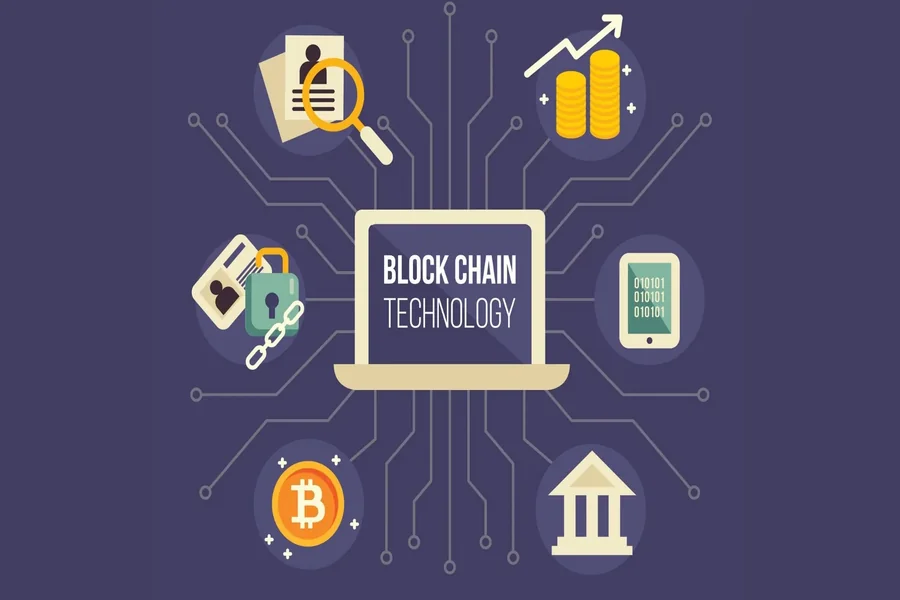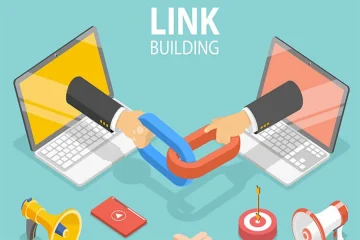Will Your Next Company Registration Happen on the Blockchain?
You’ve heard the hype about blockchain revolutionizing everything from finance to supply chains. But company incorporation? That dusty process of filing forms with government registries?
Here’s what’s actually happening: Singapore is quietly positioning itself as a global testing ground for blockchain-based corporate registries, digital shareholding, and smart contract governance. While most entrepreneurs still register a company in singapore through traditional channels, the foundations for a blockchain-powered future are already being laid.
But before you get excited about “instant blockchain incorporation,” understand this: the reality is far more nuanced than the marketing promises. Some aspects of Singapore’s incorporation process already leverage distributed ledger technology. Others remain firmly analog. And the most interesting developments aren’t happening where you’d expect.
This guide separates blockchain reality from hype in Singapore’s company incorporation landscape, revealing what’s actually operational today, what’s experimental, and what genuinely matters for entrepreneurs incorporating businesses now and over the next five years.
Singapore’s Smart Nation Vision Meets Corporate Registry
Singapore’s Smart Nation initiative drives technology adoption across government services, including corporate administration managed by acra singapore (Accounting and Corporate Regulatory Authority).
But here’s the thing: ACRA hasn’t replaced its entire corporate registry with blockchain. That’s not how government technology transformation works.
The Incremental Digital Evolution Already Underway
ACRA’s BizFile+ platform already digitalizes most incorporation processes. Online name reservation, electronic document submission, digital signatures—these aren’t blockchain innovations, but they represent the necessary digital foundation that makes future blockchain integration possible.
What most entrepreneurs miss? The current digital system already delivers most practical benefits that blockchain promises: 24/7 accessibility, instant processing, digital record keeping, and reduced paperwork. Blockchain adds theoretical benefits around immutability and decentralization, but these matter more for system architecture than day-to-day user experience.
Piloto Asia leverages ACRA’s existing digital infrastructure to streamline incorporations, completing standard applications within 1-2 business days. Whether the underlying database eventually runs on blockchain or traditional servers barely affects this user experience.
Where Blockchain Actually Enters the Picture
Singapore’s blockchain experimentation in corporate registries focuses on three specific areas: cross-border company verification, digital share registries, and automated compliance through smart contracts.
The Monetary Authority of Singapore (MAS) has piloted blockchain networks that allow foreign regulators and financial institutions to verify Singapore company credentials without manual documentation exchange. This isn’t fully operational yet, but prototypes demonstrate viability.
Digital share registries using distributed ledger technology allow real-time shareholding updates, transparent ownership tracking, and potentially automated dividend distribution. Several private companies already use blockchain-based cap table management, though this isn’t yet integrated with official ACRA registries.
Smart contracts—self-executing code that automatically enforces agreement terms—could theoretically automate compliance checks, filing deadlines, and even director resignation processes. But regulatory frameworks for code-based governance remain developmental.
The Reality Gap: What Blockchain Can and Can’t Do for Incorporation
Let’s get practical. If you incorporate a Singapore company today, what blockchain benefits do you actually receive? And what remains a traditional process despite the technological hype?
Current Incorporation: Still Mostly Traditional
When you submit incorporation documents through BizFile+, your application goes through digital but centralized databases. ACRA verifies your proposed company name, reviews your constitution, checks director eligibility, and issues registration approval—all digitally, but not on blockchain.
Your company exists in ACRA’s official registry, accessible to regulators, banks, and business partners through standard database queries. Fast? Yes. Secure? Reasonably. Blockchain-based? No.
The exception? Some corporate service providers (not ACRA itself) are experimenting with blockchain-backed document verification systems that create tamper-proof records of incorporation documents, constitutional amendments, and annual filings. These parallel the official ACRA records rather than replacing them.
Where Blockchain Creates Genuine Value
Blockchain’s real incorporation value lies in post-incorporation corporate administration, not initial registration.
Smart share registries on blockchain allow instant share transfers with automatic cap table updates, transparent ownership history, and cryptographic proof of shareholding. For companies with frequent equity transactions (startups raising multiple funding rounds, employee stock option plans), this eliminates reconciliation headaches.
Cross-border verification becomes friction-free. Instead of requesting notarized documents from ACRA and sending them to foreign banks or regulators, blockchain-based credentials allow instant, cryptographically verified confirmation of your company’s existence, directors, and shareholding.
Automated compliance through smart contracts could trigger annual filing reminders, auto-generate routine regulatory submissions, and maintain real-time compliance dashboards. But this remains mostly experimental—regulatory acceptance of code-based compliance isn’t assured.
Comparing Traditional vs. Blockchain-Enhanced Incorporation Workflows
| Incorporation Aspect | Traditional ACRA Process | Blockchain-Enhanced Approach | Current Status in Singapore |
| Name Reservation | Online application, manual approval | Smart contract auto-approval if unique | Traditional (manual approval) |
| Document Submission | Digital upload to centralized database | Distributed ledger with cryptographic verification | Traditional with digital signatures |
| Director Verification | Centralized identity checks | Decentralized identity (DID) verification | Traditional (exploring DID pilots) |
| Share Registry | ACRA central registry | Blockchain-based tokenized shares | Traditional (private blockchain pilots exist) |
| Annual Filings | Electronic submission to ACRA | Smart contract automated compliance | Traditional (automation experimental) |
| Company Verification | Official ACRA extracts on request | Instant blockchain credential verification | Hybrid (traditional primary, blockchain pilots) |
The pattern? Blockchain pilots exist for nearly every incorporation aspect, but operational reality remains traditional with incremental digital improvements.
Digital Identity and Director Verification Innovation
Here’s where Singapore leads globally: decentralized digital identity (DID) frameworks that could revolutionize director verification and corporate governance.
Singpass as the Foundation for Future Blockchain Integration
Singapore’s national digital identity system, Singpass, already verifies directors during incorporation. Every Singapore citizen, permanent resident, and registered foreigner receives Singpass credentials used across government and private sector services.
The blockchain evolution? Singpass credentials could become portable, cryptographically-verified identities that prove your director eligibility without exposing underlying personal data. File incorporation documents signed with your DID, and ACRA automatically verifies eligibility without requesting passport copies or proof of address.
Want to know the secret? This isn’t science fiction—Singapore has piloted DID frameworks through initiatives like TradeTrust and the National Digital Identity initiative. Full deployment timeline remains uncertain, but the technical foundation exists.
Cross-Border Director Verification Challenges
Foreign directors create verification challenges that blockchain might elegantly solve. Current process: foreign directors provide notarized passport copies, proof of address, and sometimes additional identification documents that ACRA manually reviews.
Blockchain alternative: foreign directors obtain verifiable credentials from their home countries (passport authorities, tax agencies, or approved credential issuers) stored on distributed ledgers. Singapore incorporation applications accept these credentials, cryptographically verifying authenticity without document handling.
The barrier? International coordination. For this to work, countries need compatible DID standards and mutual recognition frameworks. Singapore participates in international working groups developing these standards, but full implementation remains years away.
Smart Contracts and Automated Corporate Governance
The most ambitious blockchain application in incorporation isn’t registering companies—it’s governing them afterward.
What Smart Contract Governance Actually Means
Imagine your company constitution exists as executable code, not just legal text. Director appointments happen through cryptographically-signed transactions rather than paperwork. Share transfers execute automatically when conditions are met, updating the official registry in real-time.
Compliance obligations trigger automatically—annual filing deadlines generate smart contract reminders, required financial statements auto-populate from accounting systems, and routine regulatory submissions happen without manual intervention.
Sound futuristic? Parts already exist in private blockchain platforms used by progressive companies, though not yet integrated with official ACRA registries.
The Legal Recognition Hurdle
Here’s the catch: Singapore law recognizes company constitutions as legal documents. For smart contract governance to become official, Singapore would need legal frameworks recognizing code as authoritative rather than merely reflecting written agreements.
The Companies Act would require amendments allowing blockchain registries as official corporate records. Dispute resolution mechanisms would need updating for situations where smart contract code executes differently than parties intended.
Singapore’s legal system is exploring these questions through regulatory sandboxes and pilot programs, but widespread adoption requires fundamental legal evolution, not just technological deployment.
Token-Based Share Issuance and Digital Securities
Digital shares represent the most commercially advanced blockchain application in Singapore’s corporate ecosystem.
Security Token Offerings vs. Traditional Share Issuance
Some Singapore companies now issue shares as security tokens—digital assets on blockchain representing legal ownership. Each token corresponds to one share, with ownership transfers happening through blockchain transactions rather than traditional share transfer forms.
The advantage? Instant settlement, fractional ownership, transparent cap tables, and programmable securities that automatically enforce transfer restrictions or distribution rules.
The complexity? Security tokens still require legal share registers that comply with Singapore’s Companies Act. The blockchain record might be operationally primary, but companies maintain parallel traditional registries as an official record.
Piloto Asia doesn’t directly facilitate security token offerings (this requires specialized legal and technical expertise), but their comprehensive company secretary services help companies maintaining both traditional and blockchain-based share registries stay compliant with ACRA requirements.
Regulatory Framework for Digital Securities
MAS regulates security tokens under existing securities laws—treating them as securities regardless of technological wrapper. This provides regulatory clarity but also means tokenized shares face the same compliance requirements as traditional shares.
For private companies, security tokens offer operational efficiency without additional regulatory burden. For public fundraising, tokenization doesn’t circumvent prospectus requirements or investor protection regulations.
Singapore’s balanced approach—technology-neutral regulation that applies consistent rules regardless of traditional or blockchain implementation—encourages innovation while maintaining investor protection.
Banking Integration: Where Blockchain Hits Reality
Here’s where blockchain incorporation promises crash into traditional financial system reality: banks still require traditional verification regardless of your blockchain credentials.
Why Banks Haven’t Adopted Blockchain Verification Yet
You incorporate a company with blockchain-verified directors, digital share registry, and smart contract governance. You approach a bank to open a business account.
The bank requests traditional documents: certificate of incorporation, company constitution, director identification, proof of address, business plan. Your blockchain credentials? Interesting but insufficient.
Why? Banks operate under anti-money laundering (AML) and know-your-customer (KYC) regulations that specify acceptable verification documents. Those regulations haven’t yet been updated to recognize blockchain credentials as primary identification.
Until banking regulators across jurisdictions accept blockchain-based verification, the practical incorporation benefit of blockchain credentials remains limited—you still need traditional documentation for banking, contracting, and many business relationships.
The Long-Term Banking Evolution Pathway
Singapore’s Project Ubin explored blockchain-based interbank payments and digital Singapore dollar (SGD) issuance. While focused on payment systems rather than company verification, this work builds banking sector comfort with distributed ledger technology.
As banks become confident in blockchain verification reliability, KYC processes might evolve to accept cryptographically-verified credentials. But this requires coordination across global banking networks—Singapore alone can’t unilaterally shift international banking practices.
Practical Guidance: Should You Wait for Blockchain Incorporation?
Here’s the question entrepreneurs actually ask: “Should I delay incorporation, waiting for blockchain systems to mature, or proceed with traditional incorporation now?”
The answer: Proceed now. Definitely.
Blockchain enhancements to Singapore incorporation will emerge gradually over 5-10 years, not through sudden revolutionary replacement. Companies incorporated today through traditional processes will benefit from blockchain upgrades as they deploy—your existing company registration will connect to new blockchain verification systems when available.
Delaying incorporation costs real business opportunities while waiting for technological improvements that deliver marginal rather than transformative practical benefits.
Piloto Asia stays current with ACRA’s digital evolution, incorporating clients through whatever systems ACRA operates—currently traditional digital platforms, eventually blockchain-enhanced registries—without clients needing to manage technological transitions.
Future Roadmap: What’s Coming in Singapore Blockchain Incorporation
While specific timelines remain uncertain, Singapore’s blockchain incorporation roadmap includes several initiatives worth monitoring.
Near-Term Developments (1-2 Years)
Expanded blockchain pilot programs for cross-border company verification through international regulatory cooperation. Potential integration of Singpass digital identity with incorporation processes for streamlined director verification. Continued private sector adoption of blockchain-based share registries operating parallel to official ACRA registries.
Medium-Term Possibilities (3-5 Years)
Legal framework updates potentially recognizing blockchain registries as official corporate records for specific use cases. Regulatory sandbox graduates might transition from pilot to production blockchain incorporation services. International digital identity standards could enable seamless foreign director verification.
Long-Term Vision (5-10 Years)
Fully blockchain-based ACRA corporate registry remains possible if pilot programs prove successful and regulatory frameworks evolve appropriately. Smart contract governance might gain legal recognition for routine corporate administration while complex decisions remain under traditional governance. Comprehensive digital economy where company credentials, banking relationships, and regulatory compliance flow seamlessly through interconnected blockchain networks.
But here’s the important caveat: these are possibilities, not certainties. Blockchain adoption depends on technology maturity, regulatory evolution, international coordination, and demonstrated practical advantages over current systems.
Frequently Asked Questions
Do I need to understand blockchain technology to incorporate in Singapore?
No. Current incorporation through ACRA requires zero blockchain knowledge because official processes remain traditional digital systems. Even as blockchain pilots expand, user-facing incorporation will likely abstract technical complexity—you’ll interact through familiar web interfaces regardless of underlying blockchain infrastructure. Piloto Asia’s incorporation services handle technical complexities so entrepreneurs can focus on business strategy rather than technological implementation.
Will blockchain incorporation cost more than traditional registration?
Currently, no—because blockchain incorporation isn’t yet the official process. When blockchain-enhanced services become available, pricing will likely remain similar to current digital incorporation fees. Blockchain might reduce ACRA’s operational costs (fewer manual verifications, automated compliance checks), potentially enabling fee reductions. However, specialized blockchain services like security token issuance or smart contract governance incur additional legal and technical costs beyond basic incorporation.
Can I convert my traditionally-incorporated company to blockchain registration later?
This depends on what “blockchain registration” means when it becomes available. If ACRA migrates its corporate registry to blockchain infrastructure, existing companies will likely transition automatically—similar to how companies don’t re-incorporate when ACRA upgrades software systems. If blockchain registration refers to optional enhanced services (tokenized shares, smart contract governance), companies incorporated traditionally can adopt these features through amendments and restructuring without full re-incorporation.
Does blockchain make Singapore incorporation faster than traditional methods?
Not currently, because official incorporation doesn’t yet use blockchain. In theory, blockchain could enable instant incorporation if name uniqueness and director eligibility can be cryptographically verified without manual review. However, ACRA’s current digital system already processes straightforward incorporations within 1-2 business days—blockchain’s speed advantage would be marginal rather than revolutionary for most cases. Complex incorporations requiring regulatory judgment won’t speed up simply through technological change.
Building Your Company on Tomorrow’s Infrastructure Today
Here’s the bottom line on blockchain and Singapore incorporation: the technology is real, the pilots are active, and the long-term direction points toward blockchain-enhanced corporate administration.
But the gap between pilot programs and production deployment spans years, not months. The gap between technological possibility and practical advantage might be even wider—many blockchain benefits that sound transformative prove incremental when implemented.
Smart entrepreneurs don’t wait for perfect technology. They incorporate when business needs demand it, using whatever systems currently exist, confident that fundamental business success depends far more on execution than incorporation technology.
Piloto Asia positions itself as Singapore’s incorporation leader by focusing on this reality—delivering reliable incorporation through current official channels while monitoring technological evolution to incorporate improvements as they become operationally viable, not just experimentally interesting.
Ready to build your Singapore company? The incorporation process may eventually happen on blockchain, but the business you’re building depends on decisions you make today.




